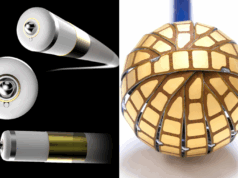A meta-analysis, published in the American Journal of Cardiology, indicates that compared with a heparin-based bridging therapy, uninterrupted warfarin throughout surgery for implantation of a cardiac implantable electronic device (CIED) is associated with a decreased risk of postoperative bleeding and similar risk of thromboembolic events.
Hamid Ghanbari, Division of Cardiovascular Medicine, University of Michigan, Ann Arbor, USA, and others reported that, according to current guidelines, warfarin therapy should be suspended in patients undergoing surgery for CIED implantation to reduce the risk of perioperative bleeding. To ensure that patients continue to receive protection against thromboembolic events, a heparin-based bridging therapy should be used instead. However, Ghanbari et al wrote: “Recent trials have suggested there is no associated risk of perioperative bleeding by maintaining therapeutic warfarin throughout the implantation procedure.” Therefore, in this new study, the authors performed a meta-analysis to “compare the safety and efficacy of uninterrupted warfarin therapy to heparin-based bridging therapy during CIED implantation.”
Through a search of various databases (including Medline and Embase) and reports presented at scientific sessions, Ghanbari et al identified eight studies (of a possible 3,195 studies) that compared uninterrupted warfarin with heparin-based bridging therapy that were eligible for the meta-analysis-meaning data for 2,321 patients were available.
Overall, the risk of postoperative bleeding complications was significantly lower with uninterrupted warfarin compared with a heparin-based bridging therapy (P<0.01) and the investigators did not find a significant difference in the rate of thromboembolic events between the two treatments. However while uninterrupted warfarin was superior (in terms of bleeding risks) to heparin in observational studies, it was not found to be superior in randomised controlled trials. Ghanbari et al wrote: “Lack of benefit from an uninterrupted warfarin strategy in this subgroup may be attributed to a small sample, which may be unable to detect small differences in outcomes.”
Despite not finding a benefit of uninterrupted warfarin over heparin in randomised controlled trials, the authors did find that the treatment was, overall, associated with a lower risk of bleeding than heparin regardless of whether unfractionated heparin was used or whether low molecular weight heparin was used for the heparin-based bridging therapy was used.
Furthermore, Ghanbari et al wrote: “The uninterrupted warfarin strategy was associated with lower risk of bleeding compared to heparin-based bridging therapy when heparin was administered ≥24 hours (p<0.01) or ≤12 hours after device implantation (p=0.02).”
Ghanbari et al wrote that their results, because the objective of discontinuing warfarin therapy is to decrease perioperative bleeding, should “give pause to the clinician considering a heparin-based bridging strategy for CIED implantation.” They added that previous studies have also found a benefit of uninterrupted warfarin compared with heparin, but explained that these studies had a small sample size. They noted: “A randomised clinical trial is currently underway but, until results become available, a meta-analysis that combines results across multiple studies can be valuable in evaluating clinical outcomes and rate adverse events.”
Ghanbari told Cardiac Rhythm News: “Perioperative management of anticoagulation is a challenging clinical problem that requires balancing the risk of acute thrombosis with preoperative bleeding. Although current guidelines recommend suspending warfarin and using heparin-based ‘bridging’ therapy, our meta-analysis shows that uninterrupted warfarin therapy during cardiac rhythm device implantation is associated with a significantly lower risk of haemorrhagic complications than heparin-based bridging therapy. Since the objective of discontinuing warfarin therapy is to reduce perioperative bleeding, our findings suggest that clinicians should strongly consider continuing warfarin therapy during cardiac rhythm device implantation.”









